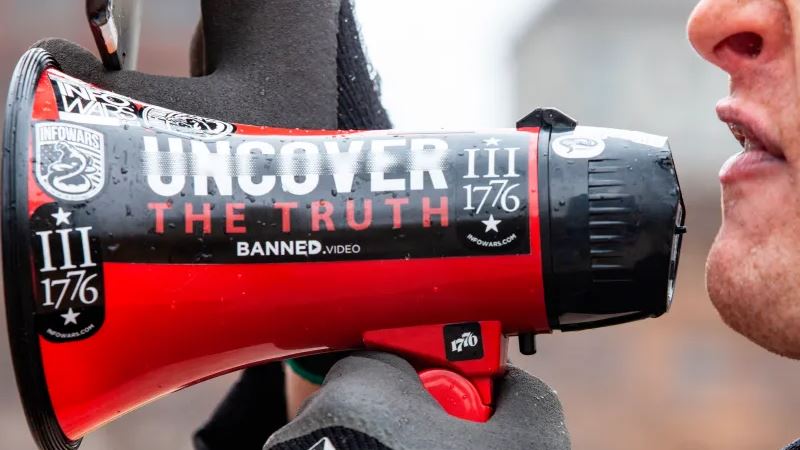In the face of reports of voter intimidation in the states of Florida, Arizona, Pennsylvania and Michigan and in some of the biggest election contests, here is a guide to the laws that protect voters
Citizens of the United States have the right to vote. Every time a person goes to vote, whether they vote in person or mail a ballot or drop it in a drop box, the voter should not feel unsafe or intimidated while exercising their fundamental rights in elections.
Voter intimidation is a federal crime. It is important to know that you should not hesitate to speak up and seek help if there is intimidation when voting. Voting must be free of concerns and threats. If something feels wrong, trust your gut. Resources are available to help you and answer your questions.
What is a militia?
Federal and state laws generally use the term “militia” to refer to all able-bodied residents between certain ages who may be called up by the government to defend the United States or an individual state. (See 10 USC § 246).
When they are not called up, they are sometimes referred to as “unorganized militia.” A group of people who are considered part of the residents referred to as members of the military under state or federal law are not legally allowed to activate for duty.
A private militia attempting to activate, outside the authority of the state or federal government, is illegal in all states.
What should I do if I see armed groups near a polling place?
First, try to document what you see:
– What do armed people do?
– What do armed people wear? Do they carry firearms? If so, what type? If not, are they carrying other types of weapons?
– Do they carry badges, banners or flags? If so, what does it say or look like?
– Do they appear to be patrolling like a law enforcement officer would?
– Do they seem to be coordinating their actions?
– Do you have a leader?
– Do they stop or talk to people outside their group?
– Do they appear to be provoking or threatening violence? If so, what are they doing, specifically?
– Do people walk away from the polling place after seeing or talking to them?
Examples of voter intimidation
– Aggressively question voters about their citizenship, criminal record, or other qualifications to vote.
– Falsely represent yourself as an election official.
– Display false or misleading signals about voter fraud and related criminal penalties.
– Other forms of harassment, particularly harassment directed at voters of color and non-English speakers.
– Disseminate false information about the requirements to vote.
Remember: You do not need to speak English to vote, in any state. You do not need to pass a test to vote, in any state. Some states do not require voters to present photo identification.
What to do if you experience voting intimidation
In many states, you can give the poll worker a sworn statement that you are eligible to vote in your state and then proceed to cast your ballot.
Then report the intimidation to the Election Protection Hotline at 1-866-OUR-VOTE or 1-888-VE-Y-VOTA (in Spanish).
Report intimidation to your local election officials. Their offices will be open on Election Day.
Is it legal to act as a private militia in California?
It is not legal. All 50 states prohibit militia and unauthorized private military units from engaging in activities reserved for the state militia, including law enforcement activities. Some, including California, also prohibit paramilitary activity during or in support of civil disorder.
The California Constitution prohibits private military units from operating outside of state authority.
Is it legal to act as a private militia in New York?
No. New York law makes it illegal for groups of people to organize as private militias without permission from the state.
Is it legal to act as a private militia in Texas?
No. The Texas Constitution prohibits private military units from operating outside of state authority, stating that “the armed forces shall at all times be subordinate to civil authority.”

